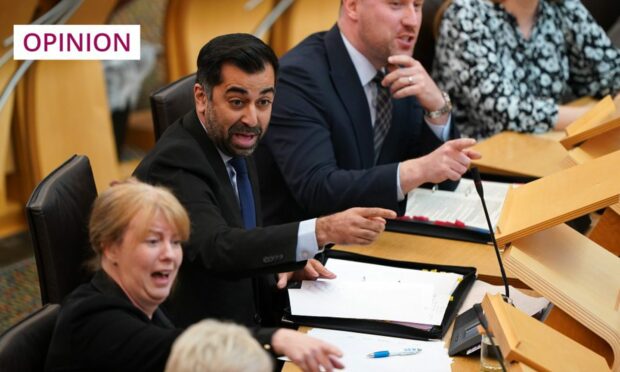For a moment there, it seemed like Humza Yousaf might have accepted reality.
Following a cross-party summit on poverty, the first minister signalled a willingness to rethink the Scottish Government’s priorities. Poverty and the cost-of-living crisis were, he said, the biggest challenges facing the country. Poverty could not be wished away. It was time for a dose of realism and debate about “tax, targeting, and tough choices”.
Given that the SNP’s headline policies in recent years have been of the flashy giveaway variety, this was a refreshing change of tone. Bread and circuses politics may sparkle with superficial appeal, but it is no way to truly reform society.
Were the Conservatives at Westminster to unveil policies which disproportionately benefited the wealthiest in society, the SNP – and, I daresay, members of other parties and none – would condemn them.
Yet, here in Scotland, we accept the expansion of “free” prescription provision to include the richest among us and the abolition of university tuition fees as somehow progressive.

The facts don’t support that belief. Before the SNP abolished prescription charges, 50% of Scots qualified for free provision and 80% of all prescriptions were dispensed at no cost to the recipient.
This great, “progressive” policy amounts to the Scottish Government taking more than £50 million a year out of the NHS drugs budget to pay for paracetamol and pile cream for well-off professionals.
Meanwhile, the abolition of university tuition fees has done nothing to close the attainment gap. Rather, the policy has meant the imposition of strict limits on uni places for Scottish students.
Universities have had to expand the number of overseas students they admit in order that their fees cover the costs of the policy. This just makes it harder still for kids from less privileged backgrounds to get in.
It’s time for discussion and debate
Sadly, Yousaf has decided that these policies are not up for discussion as part of his tough debate. This is political cowardice on the part of the first minister.
Our NHS is on its knees. It’s entirely legitimate, therefore, to ask whether we should be spending tens of millions each year to give prescribed medication to top-rate taxpayers. Education offers a clear route out of poverty, so why can’t we discuss whether a policy which limits university spaces is wise?
There is a willingness among opposition parties at Holyrood to have these discussions, but if anyone dares speak up, they are caricatured by the SNP spin machine as cruel and grasping.
This is the politics of the playground. If Humza Yousaf is serious about tackling poverty, the future of every costly giveaway policy must be up for debate.
Euan McColm is a regular columnist for various Scottish newspapers

Conversation